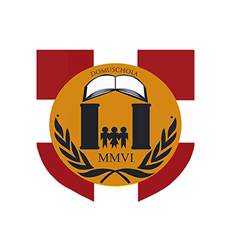
The IB Learner Profile
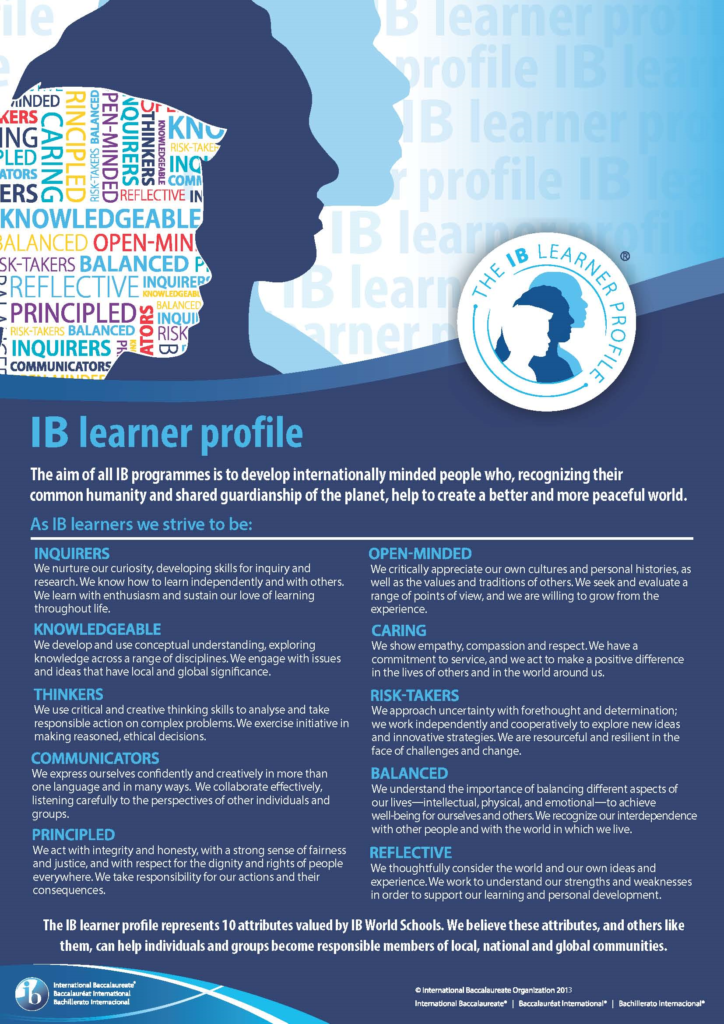

The IB Diploma Programme
An Overview for Grades 11 and 12

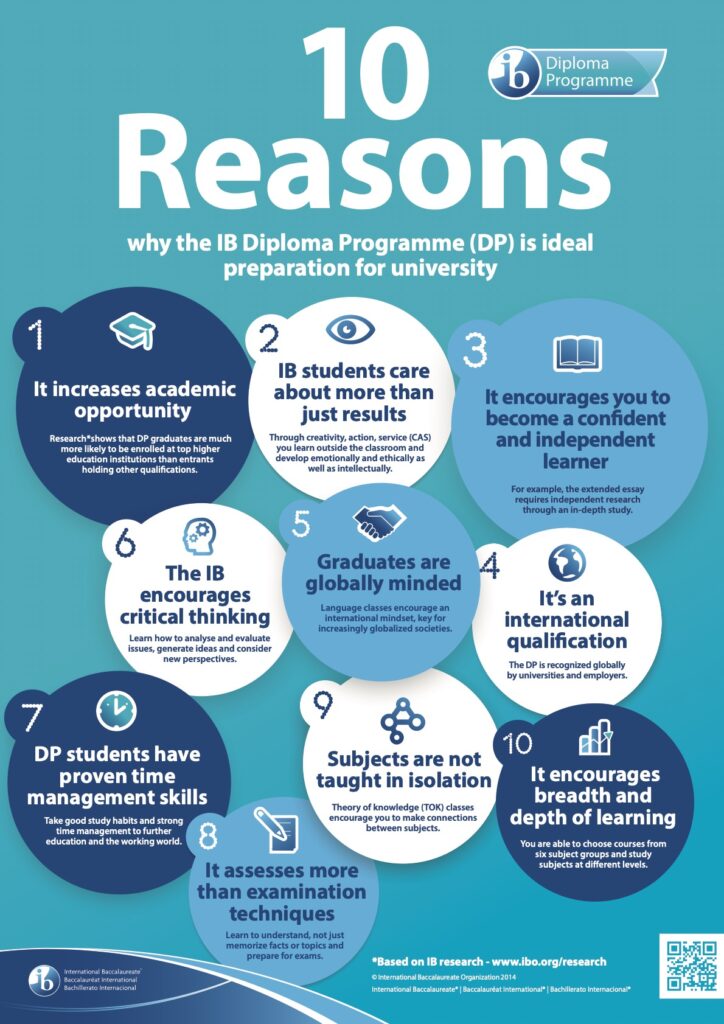
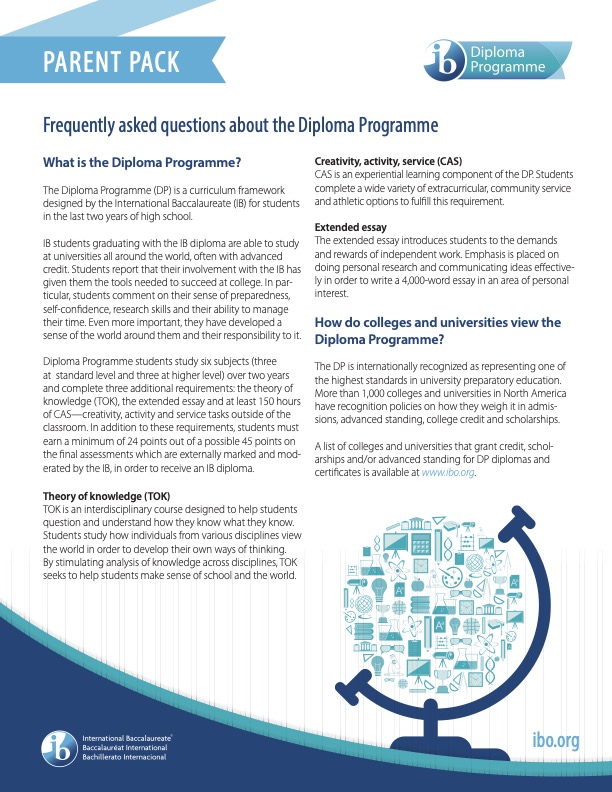
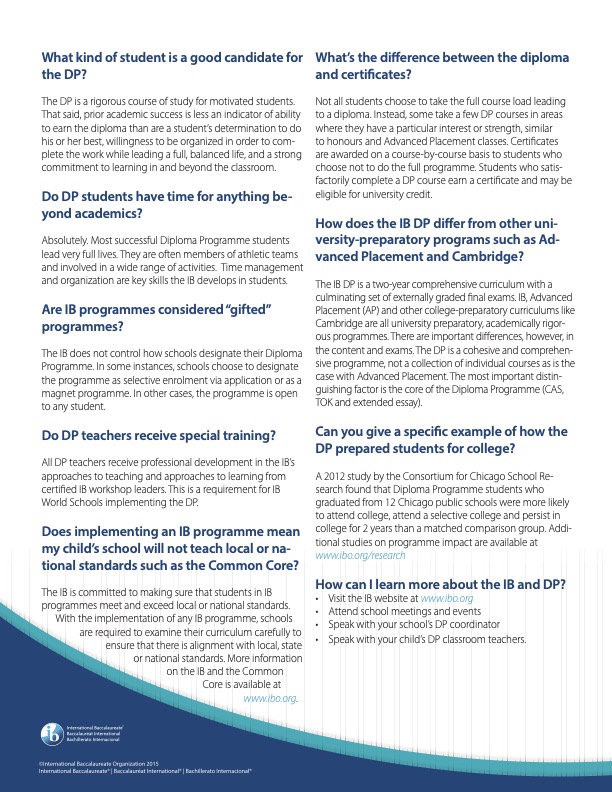
The Diploma Programme constitutes the academic framework and curriculum for Grades 11 and 12 at Domuschola School.
The Diploma Programme provides a challenging, internationally focused, broad and balanced educational experience for students ages 16-19. Students are required to study six subjects and a curriculum core concurrently over two years. The programme is designed to equip students with the basic academic skills needed for university study, further education, and their chosen profession as well as developing the values and life skills needed to live a fulfilled and purposeful life.
The driving force behind the Diploma Programme is a philosophy about the nature of education, which is expressed in the IB’s mission statement, in the IB Learner Profile, and in the fundamental principles on which the curriculum is based and which continue to inspire its development.
Some key elements of the IB Diploma Programme model are:
• The IB learner is at the heart of the program, whose development is the goal of teaching and learning and all other components of the program.
• Approaches to teaching and approaches to learning enable students to ‘learn how to learn’. These bridge the transdisciplinary skills in the PYP, and the approaches to teaching and learning in grades 6-10. Students focus on developing five categories of ATL skills: social, communication, thinking, self-management and research skills.
• The Diploma Programme core provides a connective tissue between the academic subjects and the development of students as IB learners. While Theory of Knowledge is a course with its own timetable, the Extended Essay and Creativity, Activity, Service are independently pursued by students with faculty supervision. All three components have their own assessment objectives, which students need to meet in order to meet both the requirements of the programme and of Domuschola for graduation.
• A broad, balanced range of academic disciplines. Students take a broad, balanced range of courses from six subject groups: at least two language courses, a course in Individuals and Societies, a Sciences course, a Mathematics course, and an Arts course (or an additional course choice from any subject group except for Mathematics). Across these courses, students elect three at higher level (HL), and three at standard level (SL).
• International-mindedness is the context in which all elements of the Diploma Programme are engaged. It is important to note that international-mindedness requires an understanding of and appreciation for, the local, national and regional.


Creativity, Activity, Service (CAS)
Creativity, Activity, and Service is at the heart of the IB Diploma Programme. It enables students to enhance their personal and interpersonal development. A meaningful CAS program is a journey of discovery of self and others. For many, CAS is profound and life-changing. Each individual student has a different starting point and different needs and goals. As such, CAS is individualized according to student interests, skills values and background.
CAS employs a holistic approach to strengthen students’ personal and interpersonal learning. CAS is organized around three strands:
Creativity — exploring and extending ideas leading to an original or interpretive product or performance
Activity — physical exertion contributing to a healthy lifestyle
Service — collaborative and reciprocal engagement with the community in response to an authentic need

Theory of Knowledge (TOK)
Theory of Knowledge is essential in the Diploma Programme as it develops students’ critical thinking and inquiry skills in the examination of knowledge, the ways by which we gain knowledge, and the different areas of knowledge that are in and of themselves, academic disciplines.
The course is taught within a conceptual, inquiry-driven framework, directed by questions. In the course, students are provided opportunities to question the knowledge they have accumulated over their years of schooling, to examine newfound knowledge purposefully and critically. They are expected to be able to see themselves as knowers: to ask how they know what they know, how they know what they know to be true, and how they can verify the validity of their knowledge or perhaps, even nullify it. At the end of the course, students will learn to phrase their inquiry as knowledge issues, understanding that knowledge is a human construct constantly in various stages of development, and appreciating the implications that lie therein.
The course is explicitly linked with each DP course to provide concurrency of learning across the subject groups. The overall aims of TOK is to encourage students to formulate answers to the question ‘how do you know’ in a variety of contexts, and to see the value of that question. This allows students to develop an enduring fascination with the richness of knowledge.

